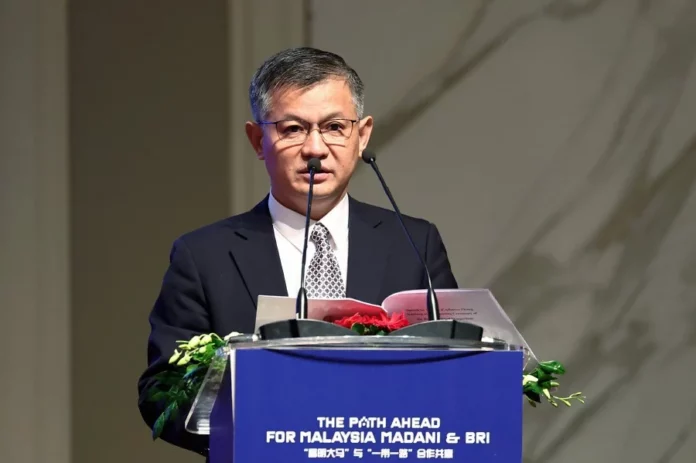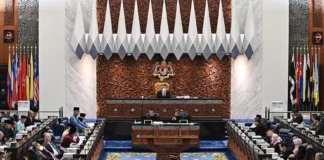KUALA LUMPUR, Oct 25 — Malaysia and China have unveiled the Belt and Road Overseas Venture Incubator (BROVI) to deepen business collaboration between the two countries.
The launch was made at the Belt and Road Symposium Malaysia 2023 here, which aims to chart the course towards the collaborative development of Malaysia Madani and the Belt and Road Initiative (BRI).
The symposium also marked the inauguration of a Malaysia-China Belt and Road Institute (MCBRI) to foster academic collaboration between the two countries.
Chinese embassy charge d’affaires Zheng Xuefang said China is willing to jointly carry out a series of initiatives and embark on substantive progress towards achieving a China-Malaysia shared future vision.
“The Malaysia Madani concept proposed by Prime Minister Datuk Seri Anwar Ibrahim chimes with the concept of a global community of a shared future proposed by President Xi Jinping.
“The two countries’ leaders have reached an important consensus on the joint building of a China-Malaysia community of shared future, which provides a clear direction for the development of bilateral relations,” he said in his remarks at the launch today.
Through previous collaborations, he said fruitful results of bilateral BRI can be seen across various sectors, with China having continued to be Malaysia’s largest trading partner for the 14th consecutive year.
In 2022, China-Malaysia bilateral trade surpassed the US$200 billion mark for the first time to hit US$203.6 billion. Chinese investments in Malaysia amounted to US$12.5 billion in 2022, accounting for 33.9 per cent of Malaysia’s total foreign direct investment (FDI).
Malaysia and China will also celebrate the 50th anniversary of the establishment of China-Malaysia diplomatic relations next year.
Meanwhile, Deputy Prime Minister Datuk Seri Fadillah Yusof said that strategically, both the concepts of Malaysia Madani and BRI share common goals of achieving comprehensive and sustainable development goals for all people regardless of race, social class or religion.
“Undoubtedly, Malaysia has benefitted significantly from China’s rapid economic growth over the past few decades, making China our largest trading partner.
“I am confident Malaysia can draw invaluable insights from China’s experience in economic development, rooted in factors such as strong government commitment to economic growth, export-oriented manufacturing, a large and educated workforce, a thriving entrepreneurial culture and attracting FDI,” he said at the event.
Fadillah noted that both nations have achieved remarkable outcomes, including transformative projects like the East Coast Rail Link, the “Two Countries, Twin Parks” initiative, and Alibaba’s Digital Free Trade Zone (DFTZ) which have yielded substantial economic and societal benefits.
Science, technology and innovation (STI) is also an important part of China-Malaysia cooperation, which is gaining strong momentum.
“China will continue to work jointly with Malaysia in strengthening cooperation in research and development and high-tech application.
“Together, we will accelerate our technological transformation and improve the life qualities of both peoples,” said Zhao Xiangdong, the counsellor of science and technology at the Chinese embassy in Malaysia.
















